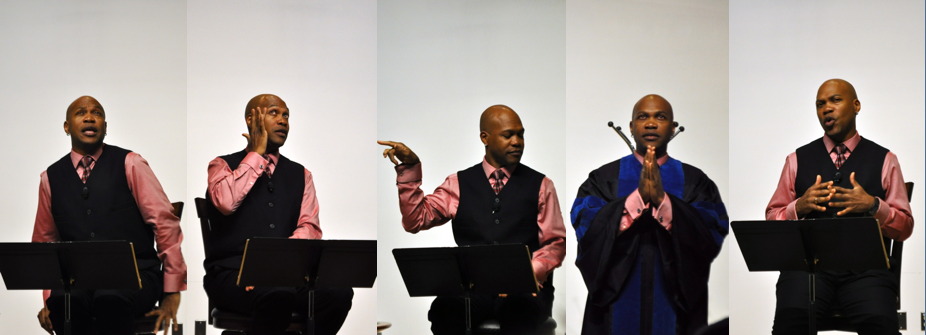E. Patrick Johnson Tells the Stories of Black Gay Men in the South
March 7, 2013
Almost 20 years ago E. Patrick Johnson was at an event sponsored by a black, gay, HIV/AIDS outreach group in Washington DC. There was a group of older men sitting around a table telling stories about growing up in the south and being gay. “I didn’t have those stories growing up and I struggled for many many years with being gay and I thought if I had heard some of these stories I would have realized that I wasn’t the only one,” said Johnson. He then decided that when he got the time and resources he would go back to the south and collect these stories of black, gay men.
Now Johnson is a Professor of Performance Studies and African American Studies at Northwestern University. In 2008 he released his book “Sweet Tea: Black Gay Men of the South–An Oral History.” He has performed his staged reading of the book “Pouring Tea: Black Gay Men of the South Tell Their Tales,” at over 80 colleges and universities around the country.
“The book is organized along the themes that emerged across it. The common theme among all of them were coming out stories,” said Johnson after his performance of “Pouring Tea” at the University of Michigan. One of common themes was religion “Religion played a huge role in everyone’s life- even if they weren’t religious now they came up through religion,” he said. There were many stories about love, people in relationships, and sex. “Lots of stories about sex,” Johnson said, laughing.
There’s one chapter of the book that is cross generational. It features the entire narratives of the two oldest people and the two youngest people he interviewed. The oldest person he interviewed a man by the name of Countess Vivian, 87, and the youngest was Stephen, 19. “I wanted to have a chapter that would really show that 70-year-old difference between the oldest and the youngest,” said Johnson.
Johnson began his interview process with people that he knew from Atlanta and his native state of North Carolina. “It literally was a snowball effect. People told people who told people who told people,” said Johnson. He would get random phone calls from people saying they wanted to be interviewed for the book “It got to the point where I had to stop interviewing people, because the book wouldn’t have been done.” Johnson ended up interviewing at least one person from every state in the confederacy. He interviewed men from small towns of 600 to those who lived in the big city of Atlanta.
The staged reading of the show starts out with Johnson coming in singing. He then walks to a small tea tray, begins to pour a glass of tea and says “Like a good southerner, I’m going to pour a little tea for you.” The staged reading consists of Johnson reenacting his interviews. He embodies the men he interviewed from their body language to their precise accents.
Not only is there the stage reading of “Pouring Tea: Black Gay Men of the South Tell Their Tales, there is also a full play where Johnson tells his own story. At the opening of his play is a story of Johnson getting his own day in his hometown of Pickery, North Carolina. However, he is standing before his town to receive this honor, but not as an out gay man. “I have to go on this journey hearing these other men’s stories, so that by the end of the play I can tell mine,” said Johnson.
While being interviewed by Johnson many of the men were doing a self reflection, because they had never had the chance to tell their stories. One man he interviewed said, “You know I hadn’t thought about that. It was because no one had asked. “A lot of time people ask me ‘how did you get these men to tell you these stories.’ I asked. Some people were waiting for someone to listen to their story, they wanted to be heard,” said Johnson.










